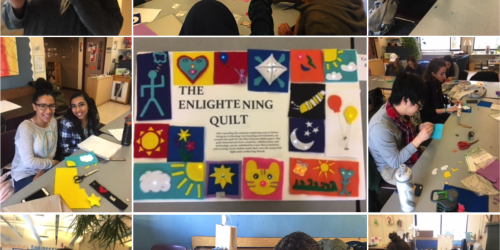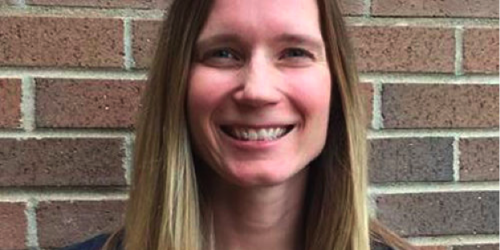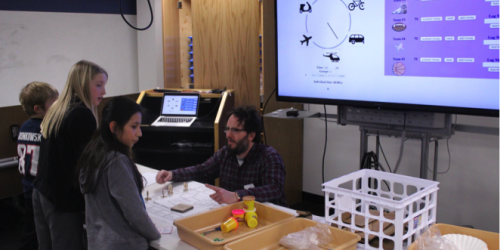Graduate student Milan Dahal details his journey from a small village in Nepal to Tufts where he has been developing low-cost Smart Motors, while earning a PhD in Mechanical Engineering.
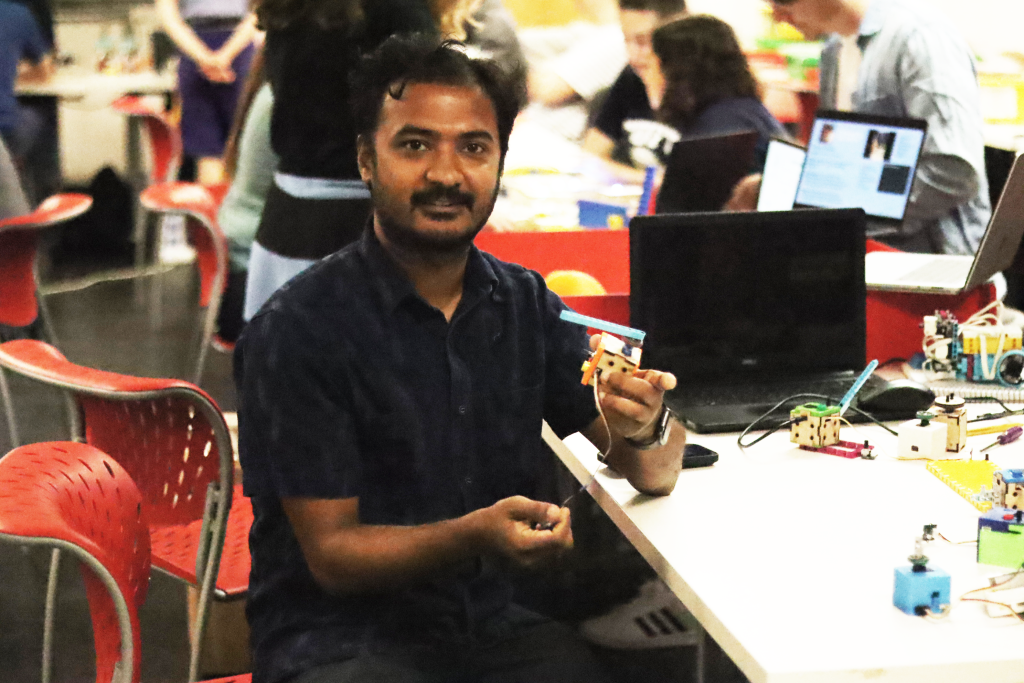
Tell us about where you are from and what your childhood was like.
I am from Inaruwa, a small town in eastern Nepal. Our father’s job took us to different places every other year or so. So, I grew up in different villages, mainly in the eastern part of the country – from the southern plains to the foothills of the Himalayas. My brother and I went to an elementary school in Khadbari. We had many volunteer teachers from the US, who I believe went to trek the Arun Valley but liked the place and stayed or returned to teach. We used to spend our summer holidays in this village in the Makalu Barun conservation area- wholly disconnected from the rest of the world. There weren’t many things to do besides going to the river, playing cards, and listening to the radio. Then, when I was in second grade, we moved to Inaruwa, where my parents live now. There was a popsicle factory on the ground floor of our house, which was fun. I was interested in playing chess and drawing. I wasn’t very outdoorsy. But I liked to ride my bike.
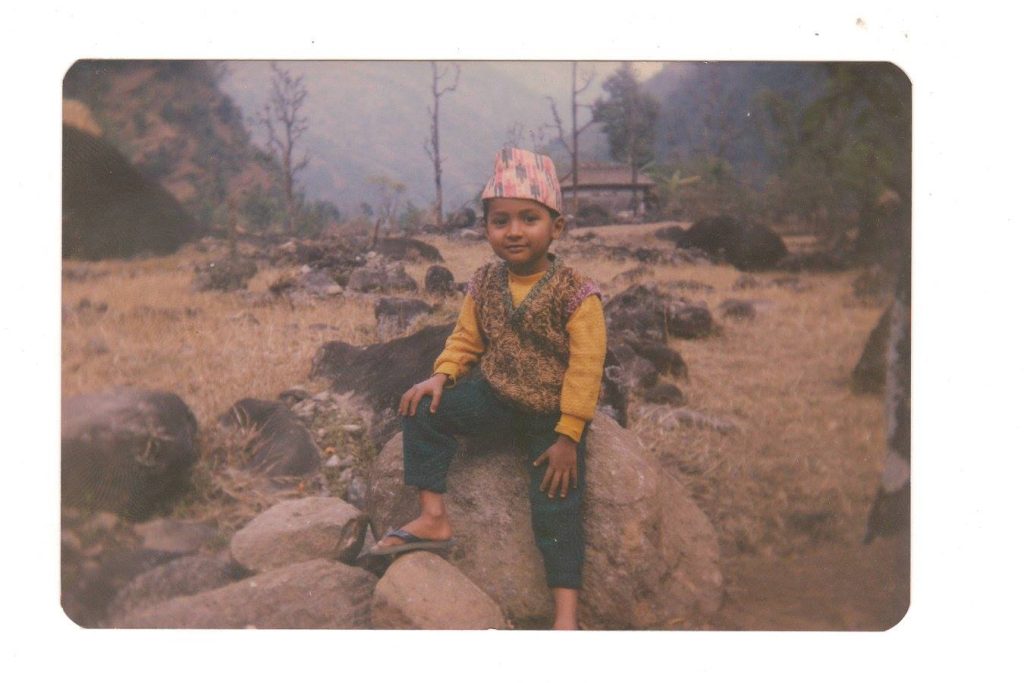
When did you first learn about engineering? What about it interested you the most?
I was always interested in solving problems, figuring things out, and curious- so I would open radios and calculators. My brother and I built little cars using motors from old cassette players. But it wasn’t until high school that I decided to become an engineer. The most exciting thing about engineering to me was I would be learning about how things worked. I was always fascinated by how you could transmit sound through telephone lines and how pictures would appear on a TV. Mobile phones and service companies had just become popular in Nepal, so, it sounded like a good career move, as well.
Why did you choose to study engineering?
In Nepal, you decide your major before you start your college. I pursued a bachelor’s in Electronics and Communications engineering because I wanted to learn about making circuits. I also thought I would have a chance to get a job after graduation.

Did you get a job in engineering after graduating?
After graduating, instead of looking for a job in engineering, I was drawn towards a teaching opportunity at Teach for Nepal (TfN). I was intrigued about living in a village, just like I did growing up. I liked the idea of teaching children and being a role model I wished I had growing up. In three years, I taught mathematics to middle school kids in two different schools, where I learned about the challenges and opportunities in education, especially in public schools. This experience got me thinking about improving teaching and learning for children deprived of resources.
How did you learn about TfN?
I was looking for a job, so I regularly checked for job openings in newspapers. One morning, I saw an advertisement from Teach for Nepal; the message was simple: “What if your first job was changing the nation?” similar to the one below. I got intrigued and inquired further and learned about their mission, which was to end education inequity in Nepal, which resonated with me. I applied for a position to become either a science or a math teacher and got selected to become one of the first cohort of fellows. I guess it is because I had lived in villages, and seen the plight of children in terms of access to education, it wasn’t a difficult decision to make.
As a teacher, I implemented a hands-on approach to learning math. I also started after-school classes where kids could draw, paint, try soldering, light up LEDs, play with motors, and build projects. This got me interested in STEM education and makerspaces.
Tell us about your research and why you chose it?
I wanted to develop user-friendly tools focused on enhancing the learning experience for children in low-resource communities. I believe technologies that offer room for tinkering with twists and turns of hardware, or color and sound, or through integration with other materials like paper, LEDs are the best learning tools. I wanted to research technologies that offer varied levels of complexity to enhance creativity and ensure learning through exploration. I wanted to explore how such tools can be affordable, durable, and available in every school.
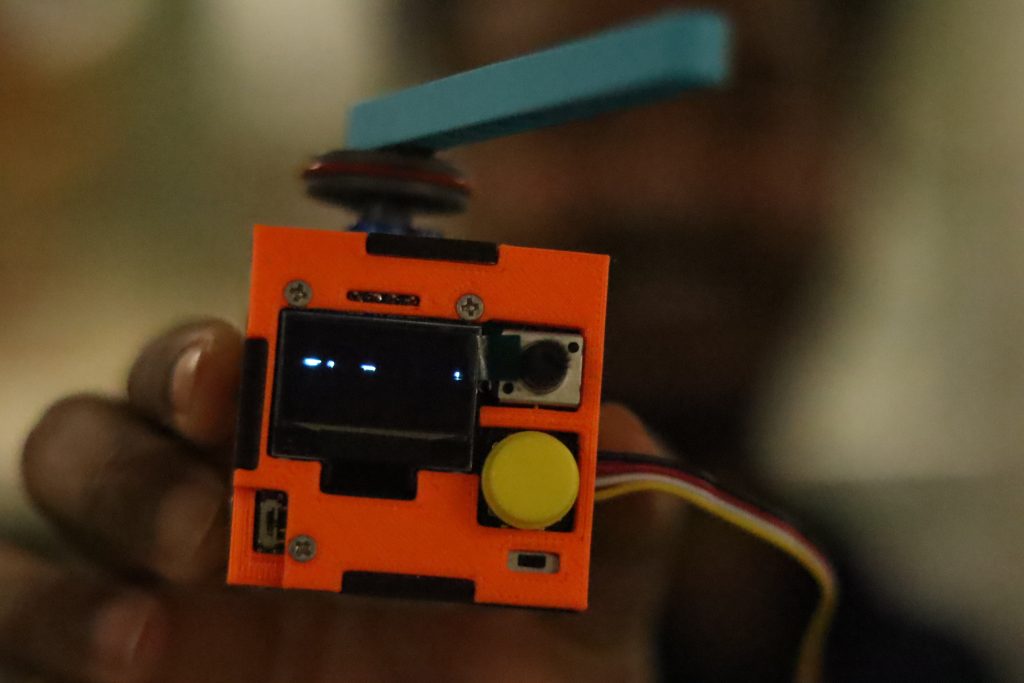
So, for my research, I built a low-cost, easy-to-use robotics system called Smart Motors. My research is focused on learning about the ways the students use this tool in classrooms. I study how children learn to program this robotics kit without a computer and how they integrate this tool into their projects. I also work with teachers to help them use this technology in their classrooms with their students.
What is your favorite thing about Tufts?
I like the supportive environment at Tufts. It is small yet diverse, and I get to meet with people from all over the world. I also appreciate how Tufts (CEEO) has allowed and supported me in pursuing my interests. I get to work with brilliant people with years of experience in the work I am interested in.
What do you want to do after you graduate?
I want to continue building accessible technologies for children. There are different constraints for people living in different parts of the world. So, it isn’t easy to come up with one solution. I want to work with folks worldwide to identify their needs and develop ideas on what might work for them.


